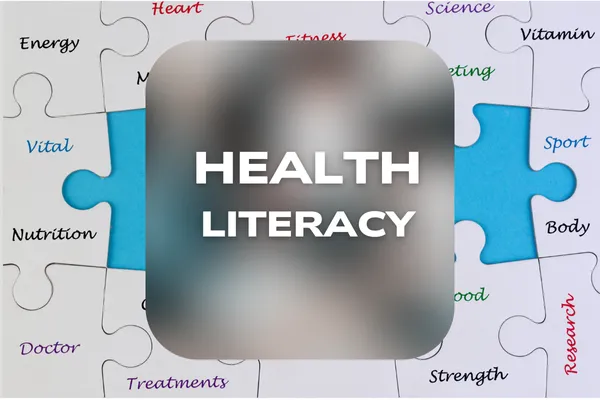
Health Literacy
Health Literacy & Prevention: Taking Charge of Your Well-being
What is Health Literacy?
Health literacy is more than understanding medical jargon it’s about feeling confident to make decisions that support your well-being. It's your ability to:
Make sense of health advice
Ask the right questions
Know when and where to get help
Take small steps each day that support your health
When health information is confusing, it’s easy to feel overwhelmed or avoid taking action. But with the right support and knowledge, you can feel more in control of your health not just when something’s wrong, but every day.
Prevention is Power
Being health literate means you don’t always have to wait for symptoms to show up. You can take action earlier. That’s what prevention is about: the small, proactive choices that reduce risk and support long-term health.
Some of the most important areas include:
Knowing your risks – understanding your family history, environment, or habits
Keeping up with check-ups – early detection makes a huge difference
Staying up to date with vaccines – protecting yourself and your community
Caring for your body – through sleep, food, and movement
Supporting your mind – paying attention to stress, mood, and emotional wellbeing
Don’t Forget Mental Health
Mental health is just as important as physical health but it’s often harder to talk about. You don’t always need to see a psychologist to feel better (though professional support is valuable when needed). Many aspects of mental wellbeing can be improved through everyday habits, especially when you understand what works for you.
Here are a few ways health literacy supports mental health:
Recognising signs early like changes in mood, energy, or sleep
Understanding self-care strategies such as mindfulness, journaling, nature walks, or social connection
Knowing when to reach out whether it’s to a friend, a helpline, or a health service
Learning how lifestyle impacts mood diet, movement, sleep, and stress all play a role in how we feel
You don’t have to wait for a crisis to take care of your mental health. Learning about what helps you stay grounded, calm, and connected is part of being health literate and part of building long-term resilience.
Simple Ways to Build Your Health Literacy
1. Find Reliable Sources
Stick to trusted websites like health.gov.au, beyondblue.org.au, or your state health department. Avoid quick fixes and miracle claims.
2. Ask Questions
Health professionals are there to help you, not judge you. It’s okay to ask for simple explanations. Bring notes or a support person if it helps.
3. Choose Supportive Services
Look for health providers that make things easy to understand and explain options clearly. Prevention works best when it's accessible and welcoming.
4. Learn Together
Health doesn’t have to be a solo journey. Join a local workshop, follow a trusted podcast, or share tips with friends and family. Small conversations can lead to big changes.
Final Thoughts
Health literacy isn’t about knowing everything it’s about knowing enough to feel confident, curious, and proactive about your wellbeing. Whether it's booking a screening, managing stress, or choosing what to eat, the more you understand, the more you can take charge of your life.
Let’s keep things simple, supportive, and human. Good health starts with good information—and grows with small, everyday choices.
